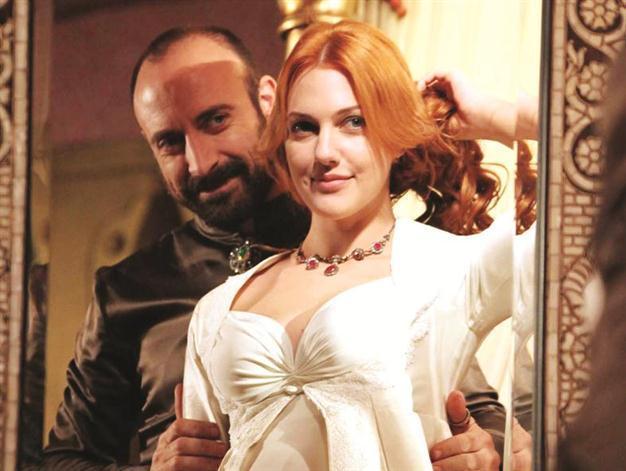Denizli becomes center for film costumes
DENİZLİ - Anatolia News Agency

Costumes for some historical film and TV series are produced in Denizl, which is famous for its textile productions. It is an important source of income in the city.
The Aegean province of Denizli, which is known for its home textile products, has also become a center where costumes and accessories, especially needed for historical Turkish and foreign films and TV series, are being produced.“We have shown it in the costumes that we have prepared for ‘Troy’ and ‘The Pirates of the Caribbean,’” Abdülkadir Uslu, the mayor of the town of Kızılcabölük in Denizli’s Tavas district, said.
Uslu said the town’s textile products were appreciated all over the world thanks to authentic weaving. The most important feature of Kızılcabölük was that it could mix its cultural and historical richness with world history, he said.
Turkey and world
The quality of dresses produced in weaving looms in their town was not only approved by the film industry, Uslu said. They have also weaved for statesmen and famous hotels. “We have so far created Turkish bath sets for the Bush family and British Royal family.”
Costumes for well-known Hollywood productions have been produced in the province so far. More recently Denizli has been weaving for the film “Fetih 1453,” which tells of the conquest of Istanbul and will be released next month. Popular Turkish TV series “Muhteşem Yüzyıl” (Magnificent Century), “Japon Gelin” (Japanese Bride) and “Çocukluğumun Bağ Bozumu” (Grape Harvest in my Childhood) have also made use of local textile crafts.
Hollywood taking note
Kadir Açar, who is working as a weaver in Denizli’s Buldan district, said people living in the palace in the Ottoman period had their underwear needs met with fabrics weaved in Buldan, and the same tradition of weaving was used today in historical films. Lingerie worn in “Muhteşem Yüzyıl” and items used in “Fetih 1453” were produced in Buldan’s weaving looms, he said.
“It makes us very pleased that our costumes reach them [film and television producers] thanks to intermediary firms. Also, we are very proud of seeing a trace of our products in every historical TV series,” Açar said.
Historical productions had become an important source of income for weavers, he said. “The interest in Denizli of costume buyers working for films is increasing. I hope we will work for these productions more.”
















